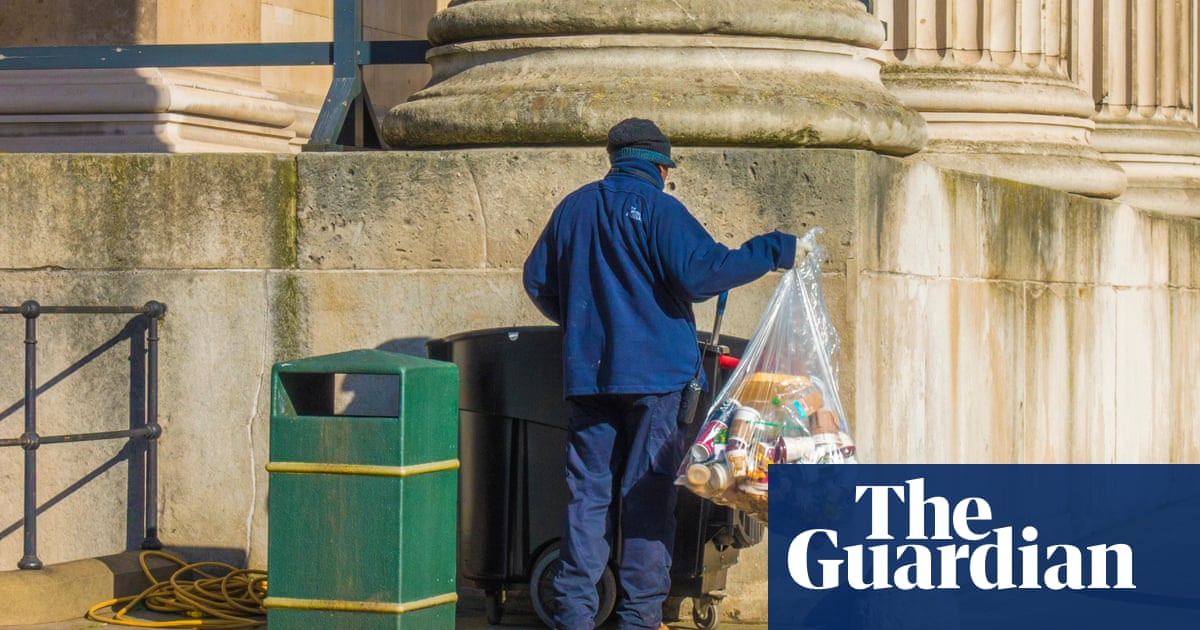
The fast-fashion retailer Boohoo has been selling clothes made by at least 18 factories in Leicester that audits say have failed to prove they pay the minimum wage to workers, a Guardian investigation has found.
Third-party audit reports produced over the past four years make claims of “critical” issues over record-keeping and working hours at the time they were written, suggesting that in parts of the supply chain workers may be paid as little as £3-£4 an hour.
Disclosed alongside new whistleblower claims about Boohoo’s supply chain, the confidential reports provide a snapshot of alleged issues in a factory at a specific time. They pose a new challenge to the brand’s insistence that issues reported in July were simply evidence of “the actions of a few” and stood in contrast to “the excellent work of many of our suppliers in the area”.
Claudia Webbe, the MP for Leicester East, where many of the factories are based, said the allegations suggested “an unforgivable breakdown of our basic social contract” and called on Boohoo to urgently release a full list of its suppliers in the city.
Boohoo said the documentation seen by the Guardian “appears to be a selection of commentary from a limited number of the third-party audits that have been completed”. But it added that its own investigations “have highlighted similar issues” in some of the manufacturers identified by the Guardian and that it had suspended trading with them until its concerns were resolved.
Claims in the documents, which were described by one expert as “a smoking gun” on Boohoo and other brands’ oversight of minimum wage issues, detail allegations of:
Workers not clocking in and out for their shifts, suggesting they worked for longer than officially recorded.
Discrepancies in working-hours records, making it impossible to verify minimum wage.
Hours set out using informal handwritten notes instead of computerised timesheets.
Working-hours records that were contradicted by workers in interviews.
Other concerns including inadequate health and safety policies, fire safety issues, missing or expired “right to work” documents, non-payment of furlough money and no records of holiday pay.
The reports, which date from 2017 to just a few months ago, came alongside whistleblower claims of other violations in Leicester’s factories. Industry sources speaking on condition of anonymity said they had seen dozens more that raised similar concerns at other Boohoo suppliers.
There is no suggestion that Boohoo had access to the reports, which were circulated to some factory managers and other brands. The company, which has been accused in the past of turning a blind eye to issues in its supply chain, has its own oversight process for factories in Leicester.
On its own investigations, Boohoo said: “Due to the nature of the non-compliance that we have found in a small number of manufacturers … we have immediately suspended orders with a number of suppliers whilst they take the appropriate action to resolve the issues identified. This includes some of the manufacturers identified by the Guardian.”
It added that it was “deeply concerned by these findings” but said that until its own investigations and an independent QC-led review were complete “it would be inappropriate for us to comment further”. The brand did not clarify which of the factories it had suspended.
Eight of the 18 companies denied some or all of the claims set out in the audits, with some calling them historical or saying they did not represent typical standards. The other 10 did not respond to multiple requests for comment.
Audit reports are a central part of how fashion brands assess working practices in factories before deciding whether to place orders. But while they may be circulated within the industry, until now the reports have not been released publicly, even when they raise concerns over possible minimum-wage violations.
“We have long known these reports exist, but brands never release them,” said Nik Hammer, an associate professor in employment studies at the University of Leicester and author of a 2015 report on the city’s textiles industry.
He said they appeared to be “a smoking gun on industry oversight of minimum-wage issues. These [findings] are classic signs of a risk of violations, and they are absolutely consistent with what I’ve heard over the years.”
The reports came alongside separate claims from one worker at Pro Fashion Limited, a subcontractor making clothes for Boohoo and its sister brands PrettyLittleThing and Nasty Gal.
The worker showed the Guardian a recent “official” payslip. It showed them earning the £8.72 legal minimum wage. Separately, the worker had what they described as a “shadow” payslip which was handwritten and they said showed many hours more had been worked. That suggested the real rate was just £6 an hour.
Pro Fashion denied the claims, saying it “follows the government guidelines of paying minimum wage … [and] does not issue any other payslip as you mention”. It said it “transfers wages to our employees direct to their bank account”.
An estimated 70-80% of clothes produced in Leicester are for Boohoo, Nasty Gal and PrettyLittleThing.
Concerns over the company’s supply chain have been raised repeatedly over the years by campaign groups, the media and MPs, including the Conservative Andrew Bridgen in a speech to parliament earlier this year. But the brand and the government have until recently largely ignored calls for reform.
The scrutiny intensified again this summer after the Guardian revealed claims that Leicester textile firms had breached lockdown measures, and the Sunday Times reported that one Boohoo supplier had offered an undercover reporter £3.50 an hour.
The Manchester-based brand had £1.5bn wiped off its share price in two days in July amid growing investor concern over practices within its supply chain. When the lockdown claims first emerged, Boohoo said they were inaccurate and that it “categorically does not tolerate any incidence of non-compliance … with our strict code of conduct”.
With investors deserting the firm, and the home secretary, Priti Patel, demanding the company do more to protect workers in its supply chain, it announced plans to set up a “model factory” in Leicester where workers would be treated fairly, and set up an independent review. It also said it would increase an inspection programme led by the third-party auditor Verisio.
But critics say the whistleblower accounts and reports seen by the Guardian provide a worrying snapshot of the problems within the industry, particularly over alleged minimum-wage violations.
At Onyx Fashion, a Boohoo supplier, one audit claimed managers admitted full-time workers were being falsely recorded as working part-time hours – an allegation the company “vehemently denied”.
A 2018 report on Ezili Dariyai, which mainly produced leisurewear, said timesheets were not signed by workers and minimum-wage payments could not be verified. The company then went into liquidation, owing more than £600,000 to HM Revenue and Customs, causing Mahomed Hanif Musa Patel to be struck off as a director. He did not respond to requests for comment.
Another firm, Bux Clothing, was accused in a 2017 audit of failing to keep proper records of working hours, making it impossible to verify the payment of minimum wage. The company did not respond to repeated requests for comment.
Bux Clothing is one of five textile firms in Leicester to separately be issued with improvement notices by the Health and Safety Executive (HSE) over hygiene and social distancing measures since the city’s second lockdown, alongside I Design Leicester, Clothing Pallet, VR Mode Limited and Smart Garments. All five complied with the notices.
As well as Bux, the Guardian has established through worker interviews that Smart Garments is also a Boohoo supplier.
Smart Garments did not dispute the HSE’s findings that it “failed to put reasonably practicable control measures in place to prevent the spread of Covid-19” but said the body was “satisfied with our risk assessment and how we managed the factory in the current Covid environment”. Boohoo did not comment on the improvement notices.
Dominique Muller, whose report on Leicester factories in lockdown for the campaign group Labour Behind the Label prompted the recent Boohoo storm, claimed the range of the audits showed that “the idea that this could go on without Boohoo’s knowledge or tacit acceptance, it’s a complete fallacy. They hold the power in Leicester, and it’s disingenuous to pretend anything else.”












